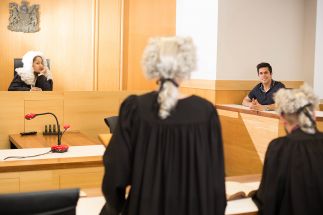In order for evidence to be admissible in court, it must be
relevant and not outweighed by countervailing considerations. Forensic
accountants need to take into considerations the legal and ethical aspects in
order to ensure the evidence and statements they obtained are admissible. Scott Porter even suggests a new standard for forensic accountant that ensures that
such model addresses ethical, legal and psychological aspects.
There are a number of techniques that forensic accountants
can utilize to gain evidence and statements.These include the REID technique,
PEACE and Motivational Interviewing.
I will focus on PEACE
and Motivational Interviewing in this blog. The REID technique has been controversial and
attributed to psychological coercion. Among many famous cases, including the
Central Park Five, the REID technique has produced numerous false confessions. The integrators
refusal to listen to the denial of the suspect creates the feeling of hopelessness which leads
to short term thinking.
Motivational Interviewing follows four principles: empathy,
develop discrepancies, roll with resistance and support self-efficacy. This style of interviewing is based on the concept that confrontation will make a suspect defensive and a confession comes from "within" fraudster. So the interviewer has to guide the interview in a way that the suspect will choose the "correct path". Russell Williams' confession was attributed to MI.
Thankfully I have not been interviewed or interrogated for any fraud. In my first professional interview for a job at a big accounting firm, the interviewer confronted me about a "Fail" on my academic transcript. His accusatory tone made me very defensive. Although the real reason I failed was both genuine and acceptable I felt I had to come up with an impressive tale for it to be accepted.
References
http://www.nova.edu/gsc/forms/mi_rationale_techniques.pdf
http://theconversation.com/the-psychology-of-interviewing-suspects-from-woolwich-to-boston-14827
http://www.reid.com/pdfs/peacearticle.pdf
http://www.acfe.com/uploadedFiles/ACFE_Website/Content/canadian/2013/presentations/5B-Scott-Porter-cpp.pdf
http://theconversation.com/the-psychology-of-interviewing-suspects-from-woolwich-to-boston-14827
http://www.reid.com/pdfs/peacearticle.pdf
http://www.acfe.com/uploadedFiles/ACFE_Website/Content/canadian/2013/presentations/5B-Scott-Porter-cpp.pdf

